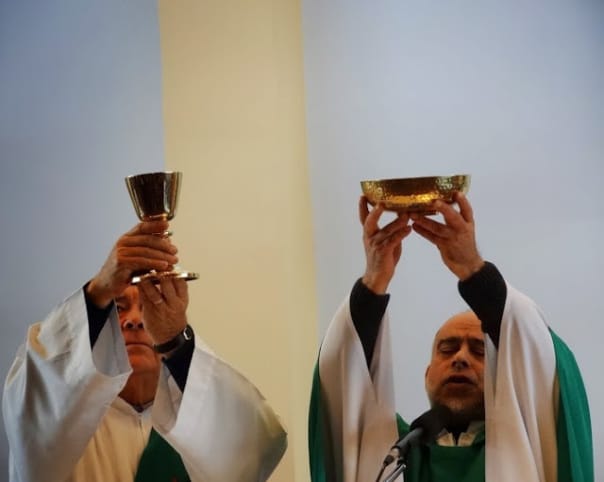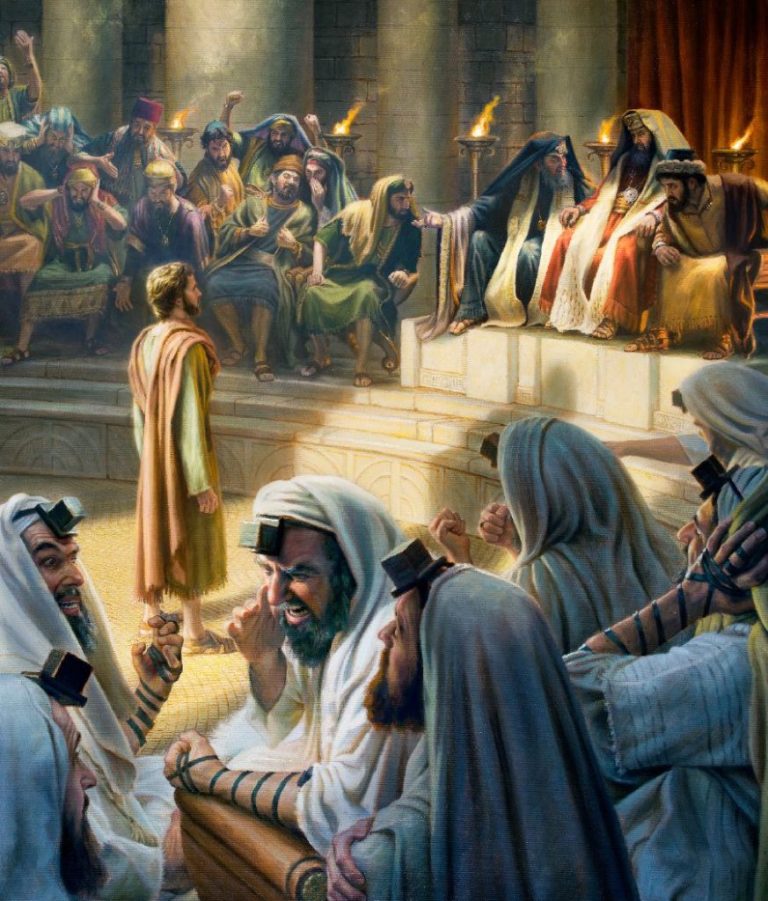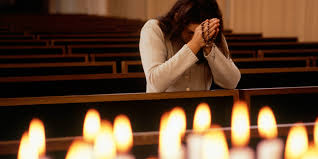Requests for the mass of the dead, a universal prayer
Petitions of the mass for the dead, it is considered a prayer that is made in memory of all the deceased people, in them they ask for the rest of their soul, know how to do it by reading this interesting article.
Mass petitions for the dead
Also called “Memorial Mass of the deceased” consists of a prayer that is used in the mass offered to the deceased saints in it prayers and different spiritual alternatives are made in order to give peace to the soul of the deceased.
The petitions of the mass for the deceased consists of a ceremony that is carried out at the request of relatives and friends of their loved ones who have passed away, generally prayer and mass are performed in honor of many deceased
The prayers, and the rest of the actions that are presented in the ceremony, represent the celebration of the word, more than a liturgical ceremony, they are designed and elaborated with the aim of granting the person who performs it, the necessary tools to carry it out.
The prayers for the deceased as the content of the word that is made in the requests of the mass of the deceased is called, must be framed within a pastoral sense, the deceased must be known and his relationship with what is being offered by those present, who really feel the ceremony.
This type of acts should not be too long and a small schedule is previously prepared, where it is printed on brochures where each mourner could carry the request in an orderly manner. These prayers have been tested before and are very helpful to family members.
Memorial Mass for the dead
The ceremony of petitions for the deceased is made up of different stages that as a whole end up building a beautiful ceremony that fills everyone who attends the mass with joy and tranquility.
introductory prayer
It is a kind of small words that welcome all the faithful and relatives, who have a relationship with the deceased, a kind of blessing is made and a small spiritual explanation of the ceremony that is going to be celebrated is given, we see an example of she:
“Brothers: We have gathered today before the death of NN, loaded with all those feelings of pain, surprise, total invalidity in the face of what is inexorable, that causes us all death. We have gathered to accompany these friends who are facing the definitive departure of a family member in their inconsolable pain.”
“If we did not have our Faith, only that we could offer them. But by Faith we know we can do more. We believe in the ‘communion of saints’, we believe that death does not completely break the ties that united us with those who departed. We can help them in their entrance into the afterlife with our prayers, if they need them, just as we also hope that they, from their new closeness with God, continue to watch over us.”
started with a greeting
Then proceed to perform the introduction greeting and welcome to the ceremony, the description of the greetings is as follows:
“May the grace, peace and consolation of God our Father, of Jesus Christ the Lord and the communion of the Holy Spirit, accompany NN on her path to eternal life, and always be with each and every one of you. And with your spirit .”
Prayer to the dead
In this part of the petitions of the mass for the dead, the spiritual ceremony really begins where a prayer is made in request to bring peace to the soul of the deceased or deceased, asking for the eternal rest and peace of each one of the deceased. Deceased:
“Lord, Holy and Good Father, almighty and eternal God, we humbly beg you for your servant, whom you called from this world to your presence; Deign to take him to the place of rest, light and peace. “
“Grant him to victoriously cross the gates of death, so that he may dwell with your saints in heaven, in the light that you promised to Abraham and his descendants. May he be freed from all pain and may he be placed among the saints and chosen, when the moment of resurrection and prize arrives, so that together with you, he may enjoy immortal life in the eternal kingdom. Through Jesus Christ Our Lord. Amen.”
Psalm readings
The prayer of the psalm of hope is performed and all those present who have a Bible are invited to continue reading it, those who do not have one can use the previous brochure that was delivered at the entrance of the religious site.
“We are now going to pray Psalm 22, which expresses our confidence in the goodness and power of God. He, even in the darkest moments of our existence and even after death, takes care of us. We all say: “The Lord is my Shepherd, I can lack nothing.”
“In green meadows he makes me lie down. The Lord is my Shepherd, I can lack nothing
“He leads me to calm springs and repairs my strength, he guides me on the straight path for the honor of his name. The Lord is my Shepherd, I can lack nothing.”
“Although I walk through dark ravines, I fear nothing because you go with me, your rod and your staff calm me, The Lord is my Shepherd, I can lack nothing. “
“You prepare a table before me, before my enemies you anoint my head with perfume and my cup overflows, The Lord is my Shepherd, I can lack nothing.”
“Your kindness and your tenderness accompany me every day of my life, and I will dwell in the house of the Lord for endless years, The Lord is my Shepherd, I can lack nothing.”
additional sentence
Then you can make the option of the “prayer for those who cry before death”, as its name indicates, it is a prayer that consists of a spiritual tool to help those who suffer and have problems to overcome the death of a loved one , and they keep crying for a long time.
This prayer is very flattering and most of the time it is recommended to perform it in the petitions of the mass of the dead, and it is not recommended to omit it during the petitions of the mass of the dead, for its beautiful content let’s see:
“Father of mercy and God of all comfort, who always care for us with love and transform the darkness of death into the dawn of life, look at these children of yours who cry in their tribulation, be our refuge and strength, Lord, and lead us from the darkness of crying and pain, to the peace of your presence.
“Since your Son, Jesus Christ our Lord, by dying destroyed the power of death and by rising to life gave us new life, grant us to follow in his footsteps, so that at the end of our lives we may come together with our brothers and sisters in that place where all sins will be wiped clean.” tears from our eyes. Through Our Lord Jesus Christ amen.”
Prayer to the community
It consists of a prayer that has great force when it is performed together, especially if there is a majority of people related to the religious community of the area, deer:
“All together as the People of God, as a well-knit family. Let’s go, then, brothers, to pray like this united. We will pray not only for ourselves and for our brother (the name of the deceased is said), but also for the whole Church, for peace in the world and for our salvation. We ask you sir. Amen”
For all the pastors of the Church, for all those who help us on the path of salvation, so that what they teach with their words they also fulfill with their deeds, we pray to the Lord. We ask you Lord.”
“For those who direct the destinies of peoples, that they promote justice and peace, let us pray to the Lord. We ask you, Lord
“For those who suffer in body or spirit, for the sick, for the sad, for those who are alone, for those who cannot find work, so that they never believe they are abandoned by God, we pray to the Lord. We ask you, Lord”
“That the Lord may deign to deliver his servant (he is named) from the kingdom of darkness of death, we pray to the Lord. We ask you, Lord.”
“That he deigns to place him next to Him, among the saints of Heaven, let us pray to the Lord. We ask you, Lord, so that the Heavenly Father who deigned to admit among his children (Say the name or names of the persons) on the day of Baptism, now receive him among the Saints in glory, we pray to the Lord . We ask you, Lord”
“So that the Giver of all good, that on the day of Confirmation he gave to (Say the name or names of the people), his Holy Spirit, now recognizes him marked by that divine seal, we pray to the Lord. We ask you, Lord.”
“So that the Good God, who so many times forgave our brother in the Sacrament of Reconciliation, forgets all the faults he may have committed, we pray to the Lord. We ask you, Lord.”
“So that Jesus, who said “Whoever eats my flesh and drinks my blood, will not die forever” and who came so many times to the heart of (The deceased are named) in the Eucharist, now give him eternal life, we pray to the Lord We ask you, Lord.”
The prayers regarding this prayer can be very extensive depending on the spiritual needs of the faithful, some make them a little longer, others shorter, the consideration is always in the hands of the priests and the ecclesiastical authorities.
To end this part of the Mass in memory of a deceased, all participants are invited to say the following:
“Hear, Lord, our pleas and grant the Church fidelity to your word, peace in justice for all peoples, mercy and forgiveness for the deceased that they always desired, and us the consolation that we need. We ask this through Jesus Christ Our Lord, Amen.”
Word reading monitor
This part opens a preamble indicating the motivation for reading the word, it is called “Monition”, which is a warning that is made in the celebrations of the liturgy, in order to prepare the faithful with regarding the activity that continues in the ceremony.
First reading of the word
Generally, a verse from the Bible that is related to the deceased is selected, it is decided to take some action where Jesus Christ was involved, some words from the Old Testament can also be taken, such as:
The reading of the book of Job, where interesting situations related to the glory and existence of God are detailed:
“I know that my Redeemer is alive and that in the end he will raise me up from the dust! After he leaves me without skin, without my body, I will see God; I myself will see him and no other, my own eyes will see him.”
second reading of the word
Like the previous one, a writing from the Bible is selected where some related topic with the deceased is expressed, let’s see this:
“A voice from heaven said to me: ‘Write this: happy from now on are the dead who have died in the Lord.’ Yes, says the Spirit, let them rest from their fatigues, because their good deeds accompany them.”
At the end of each reading it is important to say: “It is the word of God” and the faithful respond: “We ask you Lord”.
Third reading of the word
In this case, reading the book of wisdom is always going to be defined, in it the life of the good is established since they are in the hands of God, it says like this:
“The life of the good is in the hands of God and torment will not touch them. The foolish thought they were dying, considered their passage as a misfortune, their departure from among us, as a destruction; but they are at peace. People thought they were punished, but they sure hoped for immortality.”
“They suffered a little while, they will receive great rewards, because God tested them and found them worthy of himself: he tested them as gold in the crucible, he received them as a pleasing sacrifice. On the day of judgment they will shine like sparks that light a reedbed. Those who trust in Him will know the truth, and the faithful will remain with Him in love, because the elect will find grace and mercy.”
It is the word of God, we ask you sir.
fourth reading of the word
Any biblical verse referring to wisdom is also taken, where the content is as follows:
“The just person, even if he dies, enjoys rest. Respectable old age does not consist in having a long life, nor is it measured by the number of years. True old age is prudence, and mature age is a life without stain. The just person knew how to please God, who loved him and now I take him with Him.”
It is the word of God, we ask you sir.
Fifth and Sixth Reading of the word
In this way, the various Biblical readings are made until reaching the sixth Reading, previously the fifth reading has been taken, which also establishes the book of wisdom but dedicated to the deceased young people, in the sixth reading the book of the Maccabees is taken .
It contains descriptions of the New Testament, let’s see:
“In those days, Judas, the chief of Israel, took up a collection and sent the collected to the temple of Jerusalem, so that a sacrifice was offered for the dead, acting with great righteousness and nobility, thinking of the resurrection.”
“If he had not waited for the resurrection of the fallen, it would have been useless and ridiculous to pray for the dead. It is a good and holy idea to pray for the deceased to be delivered from all evil. “It is the word of God, we ask you sir.
Other readings
It is almost obligatory to carry out in the requests of the mass for the dead, to carry out readings contained in the new testament, let us remember that this part of the Mass offers the variation very similar to the traditional liturgy of proceeding to the reading of the word, in this case it is they can take verses that allow the ceremony to be related to the Bible, some of them are the following:
- Reading of the letter of Saint Paul to the Philippians
- Reading of the letter of Saint Paul to the Romans
- Reading of the letter of Saint Paul to the Ephesians
- Reading of the letter of Saint Paul to the Thessalonians
Any of Paul’s letters can be developed during the reading of the word, these are taken for their deep spiritual content, the inspiration of the apostle in his way of expressing love for Jesus.
The Responsorial Psalms
They are performed at the end of the readings of the word, they serve to bring peace to the souls of the deceased and calm the emotions of the mourners, who must somehow seek the tranquility of their deceased relatives.
- Primer Salmo responsorial:
“My soul is thirsty for God Oh God, you are my God, for you I get up early My soul is thirsty for you; my flesh yearns for you, like parched land, withered and without water. My soul thirsts for God.”
“How I contemplated you in the sanctuary, seeing your strength and your glory! Your grace is worth more than life. My lips will proclaim your praise. My soul thirsts for God. All my life I will bless you and raise my hands invoking.”
“I will sate myself with rich delicacies and my lips will sing joyfully to you. My soul thirsts for God Because you were my help, in the shadow of your wings I sing with joy; My soul is with you and your right hand sustains me
- The second Responsorial Psalm can be expressed as follows:
“I will walk in the presence of the Lord in the country of life. The Lord saves the simple: when I was without strength he saved me. I will walk in the presence of the Lord in the country of life I had faith even when I said: “how unfortunate I am” I said in my haste “men are liars”
“I will walk in the presence of the Lord in the country of life. The death of his faithful ones cost the Lord a lot. Lord, I am your servant, you broke my chains. I will walk in the presence of the Lord in the country of life”
- Third Responsorial Psalm:
“What a joy when they told me, Let’s go to the house of the Lord. What joy when they told me Let’s go to the house of the Lord. Your thresholds are already stepping on our feet, Jerusalem”
“What joy when they told me, Let’s go to the house of the Lord, Jerusalem is founded as a strong city, there the people go up, the people of the Lord”
“What a joy when they told me, Let’s go to the house of the Lord. According to the custom of Israel, to celebrate the name of the Lord. There are the courts of Justice, in the King’s palace.”
“What a joy when they told me, Let’s go to the house of the Lord. Ask for peace for the house of God, to those who dwell in that place. In the house of the Lord our God, I wish you all good.”
“What joy when they told me, Let’s go to the house of the Lord”
reading of the gospels
The gospels are known by all Christians, in them various experiences of situations related to the life and work of Jesus Christ are expressed, for the ceremony of the petitions of the mass for the dead the following can be taken:
- Reading of the Holy Gospel according to Saint John
- Reading of the Holy Gospel according to Saint Matthew
- Reading of the Holy Gospel according to Saint Luke
Homily
Although some do not agree to carry it out due to the type of ceremony, in some cases a Homily is made, which can be carried out by the priest who presides over the act. This homily can be accompanied by the so-called Litanic prayers (they are chants of the Mass), always ending by saying: Let us pray to the Lord”, and the faithful respond “We ask you Lord”.
Prayer and Our Father
The culminating part of the petitions of the mass for the dead, establishes a short reflection that adds an Our Father, the prayer says as follows.
“Lord, you have mercy on us, grant NN eternal rest and us the consolation that we ask of you through Jesus Christ Our Lord” Amen.”
A request is then made by the person directing the ceremony:
“Brothers, let us pray now as Jesus teaches us, the prayer of the children of God. We hold hands and say all together” (At that moment the Our Father is prayed)
Next, the body of the soul of the deceased or the deceased is sprinkled naming them and throwing the water into the air, as a memory of their baptism, the following Blessing is said:
“Give them, Lord, eternal rest… Let perpetual light shine for them, May the souls of the faithful departed, by the mercy of God, rest in peace, The blessing of Almighty God accompany our deceased brother and always remain with all of you. in the name of the Father, the Son, and the Holy Spirit. Amen”
farewell
The priest ends the ceremony saying a few words of thanks to the relatives of the deceased (and renames them), granting God’s blessing for having shared that moment of pain, the rest of the farewell make up a few words spontaneously from the cleric to the people that is here. In the end you can conclude as follows:
“May the souls of the faithful departed rest in peace amen, and in this way the mass concludes.”
Universal Prayer for the Dead
The following prayer can be applied to the ceremony of the petitions of the mass for the dead, likewise any Catholic can do it anywhere where he considers that he is alone and without any inconvenience, this prayer is expressed as follows:
“Let us pray to God, the almighty Father, who raised his son Jesus Christ from the grave and let us faithfully pray for the salvation of the living and the dead. For the Pope, the Bishops and all the pastors of the Church: that they may announce the Gospel of Hope and joy by accompanying the troubled, we pray to the Lord.”
“For those who govern nations: that they may promote justice and peace and defend human life in all its stages, we pray to the Lord. For all those who suffer in their soul or in their body: so that they never think that they have been abandoned by God, we pray to the Lord.”
“For our deceased relatives: that God may welcome them kindly, purify them with his mercy and clothe them with immortality, we pray to the Lord. For our deceased friends and benefactors, that God may welcome them into his kingdom and grant them the glory of the saints, we pray to the Lord.”
“For our brothers and sisters, so that the Lord welcomes them into his Kingdom and opens the doors of the Father’s house, let us pray to the Lord. Almighty and eternal God, Lord of the living and the dead, slow to anger and rich in mercy, we humbly beseech you, that through the intercession of the Blessed Virgin Mary and that of all the saints, you mercifully grant forgiveness of their sins and life eternal to those for whom we have prayed. Through Jesus Christ our Lord. Amen”
Other types of mass
In some countries a mass very similar to the one we have just explained is carried out, it is called “Memorial Mass for the deceased” its spiritual content is the same, there is no difference in the requests of the mass for the dead with respect to this type of ceremony.
Its depth is similar to the requests of the masses for the dead and the differences are found in small ways of praying and its way of carrying out, let’s see its structure.
Introduction with the Welcome Rite
The ceremony begins by saying the following by the priest:
“Jesus told us that the grain of wheat has to die underground in order to become an ear; He also told us that every tree that bears a good harvest must be pruned so that its fruits improve.”
“He set it as an example of how his life was going to be and how ours should be: to give up ourselves so that a new life can flourish.” and continues the cleric saying:
“In this Eucharist we are going to remember our brother (and the name or names of the deceased are said) keeping in mind the Death and Resurrection of Jesus, we are going to understand what this means for us and understand that we all have to overcome this test: the most difficult but also the safest, the one that brings us hope in a future life.
“For those of us who believe in Jesus, death only makes sense if we look at it in the light of the Resurrection morning, when the seeds we have deposited on earth begin to flourish and the branches of the fallen tree sprout.
request for forgiveness
It is done by the priest and the faithful must respond with a person called a monitor in front of them:
Priest: “Jesus tells us in his Gospel that from the seeds we plant in the spring of our lives, the fruits will sprout for tomorrow. If we sow good, God will be on our side when judging us. And even if things haven’t gone so well, he will forgive us.”
Monitor: Forgive us, Lord, because we enjoy everything you have created and we forget about You, its Creator. Forgive us, Lord. We ask your forgiveness, Lord-Jesus, because we blame you for the evil that exists in the world and we forget that you suffered the Cross to save us. Christ, forgive us. Forgive us, Lord, because we do not know how to recognize that every minute of our life is a gift that You give us and sometimes we mistreat it… Forgive me, Lord.”
Absolution
It is a part of the petitions of the mass for the dead where the priest offers forgiveness to all the faithful and relatives of the deceased, giving thanks for their presence and allowing entry to the house of God.
Prayer
This part is very similar to the one raised above, the prayer to the deceased can be performed in the same way as it was done with the one described at the beginning, so there is no variation in this aspect.
word readings
The Monition is made and later only the reading of the word, which is only one in this case, the reference is taken from any gospel of the new testament that is related to the ceremony in question, the word can be said by those who select who is leading the mass.
Acclamation
It consists of a call to Jesus fully expressing gratitude for the actions he is carrying out today, somewhere in the acclamation the faithful must say:
“Lord, hear my prayer. Listen to me right away, Lord, I’m short of breath. In the morning make me hear your grace, since I trusted You. Lord, hear my prayer. “
Gospel
We proceed to read only the Gospel according to Saint John:
“At that time, Jesus said to the Jews: I am the living bread that has come down from heaven: whoever eats this bread will live forever. And the bread that I will give is my flesh, for the life of the world.”
“Then the Jews argued among themselves: How can this man give us his meat to eat? Then Jesus said to them: I tell you the truth, unless you eat the flesh of the Son of Man and drink his blood, you have no life in you. Whoever eats my flesh and drinks my blood has eternal life, and I will raise him up on the last day.”
“My flesh is true food and my blood is true drink. He who eats my flesh and drinks my blood, he dwells in me and I in him. The living Father has sent me and I live because of the Father; in the same way, he who eats me, he will live by me.”
“This is the bread that has come down from heaven: not like that of your fathers, who ate it and died: whoever eats this bread will live forever. Amen”
This homily is addressed to the deceased and is made up of several parts, where all those present are remembered and blessed so that they remember their loved ones with love, and that they understand that they are in the arms of God, the homilies are:
- In memory of our deceased
- Homily Day of the Dead, recalling the Resurrection of Jesus.
Prayer to the faithful
Then proceed to pray to all the faithful present where each one is directly involved with the activity, this prayer can be said by whoever the priest designates:
Offerings
They allow giving in this belief some offerings that the faithful voluntarily want to donate, accompanied by the following prayer:
“We offer you the bread and wine, fruits of the land and the work of the men and women, who tilled the land, sowed the grain and planted the vineyard. Together with them, we offer our lives, our works and sweats, and also our joys. Receive it as our best offering. We offer you, through Jesus Christ Our Lord. Amen.”
Culmination
The culmination of the ceremony is carried out with the so-called consecration where the father performs a series of praises and requests so that the souls of the deceased can rest in peace, it is a bit long and some prefer not to lengthen the ceremony to say it in a short way.
The end of the mass continues by praying an Our Father, then the gesture of peace towards all men, where the giving of bread is expressed and the expectation that we must have regarding the arrival of God in our hearts. The priest dismisses the ceremony by thanking all those present.

Hello! Let me enthusiastically introduce myself as a dedicated blogger fueled by an intense passion for meticulously crafting insightful and well-researched blogs. My mission revolves around providing you, dear readers, with a veritable treasure trove of invaluable information.







